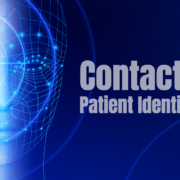The Professional Patient Problem Still Exists in Clinical Trials – Are You Preventing Them?

We’ve been talking about clinical trials for some time now. Usually, we talk about how integral these studies are for discovering new drugs, devices, or treatments, and how their outcomes affect all our lives as well as healthcare in general. However, today we are focused on one of the overlooked issues – the professional patient problem, and how the long-standing issue continues to skew overall results.
That being said, let’s take a look at a real-life case of a professional patient that participated in multiple clinical trials, how their involvement and actions can hamper trials and cause billions in losses, and how a patient identity verification platform like RightPatient can help prevent their participation.

RightPatient can prevent professional patients in clinical trials.
The professional patient problem is very real – a recent example
A case that occurred in 2019 in Louisiana
At the end of 2019, patient X had signed up for a clinical study for asthma. While she was accepted into the trial like most of the individuals that volunteered for it, she had falsified some of her information to make herself appear eligible for the trial.
There was a prerequisite stating that the subjects shouldn’t have had a certain steroid within the past two to three weeks. However, patient X did take it only a few days before signing up for the trial, and when she was asked, she flat-out denied taking it, as per Medscape Medical news. Unfortunately, she did make it into the trial, and her statement regarding her use of the steroid wasn’t verified.
However, that was just one clinical trial patient X participated in – there’s more. Otherwise, this wouldn’t have been an example of the professional patient problem!
Same professional patient, different study
Patient X participated in an entirely different study on nasal polyps, and in this case, she once again provided misleading information. While the trial focused on reducing nasal polyps using a certain spray, patient X was already using the same medication, but she informed the officials that she wasn’t. The study compensated her handsomely, which is why she was tempted to falsify information.
But what did the officials do to verify her information?
They requested a note from her physician, checked her driver’s license, required access to her patient portal, and viewed photos of her medications, among other things. Even then, they couldn’t detect the fact that she falsified information to sign up for the clinical trial.
Professional patients skew overall results and delay effective trials
The tale of patient X is not a rare incident, unfortunately. These cases are examples of the professional patient problem, and they occur too often to be ignored. The participation of these individuals is a significant blockage to carrying out clinical trials effectively, and more often than not, these cases are discovered only when it’s too late. Their involvement in the trials affects data significantly and might cause even promising drugs to be delayed or even announced to be ineffective. Not only does their participation cause promising drugs to not see the light of day, but it also causes much-needed breakthroughs in medicine to be delayed. These are the consequences of professional patients falsifying data, participating in multiple trials simultaneously or consecutively, and faking results, and might cause trials to not proceed to the subsequent phase(s). As a result, the participation of professional patients, or “professional study subjects”, must be eliminated.
Fortunately, professional patients in clinical trials can be prevented with RightPatient.
RightPatient helps combat the professional patient problem
A touchless biometric patient identification platform, RightPatient has been helping responsible healthcare providers prevent scammers from using healthcare services within their facilities. The platform identifies patients using their photos that are taken during registration and prevents fraudsters from assuming the identities of registered patients – it can do the same for clinical trials too.
RightPatient can help maintain a database of the registered patients in clinical trials at multiple sites, and whenever a fraudster or these professional patients try to sign up, the platform can red-flag them – saving billions, protecting the integrity of your trials, and preventing delays.
Use RightPatient now to see how it can ensure that your investments are protected and improve the efficacy of your clinical trial(s).










Leave a Reply
Want to join the discussion?Feel free to contribute!